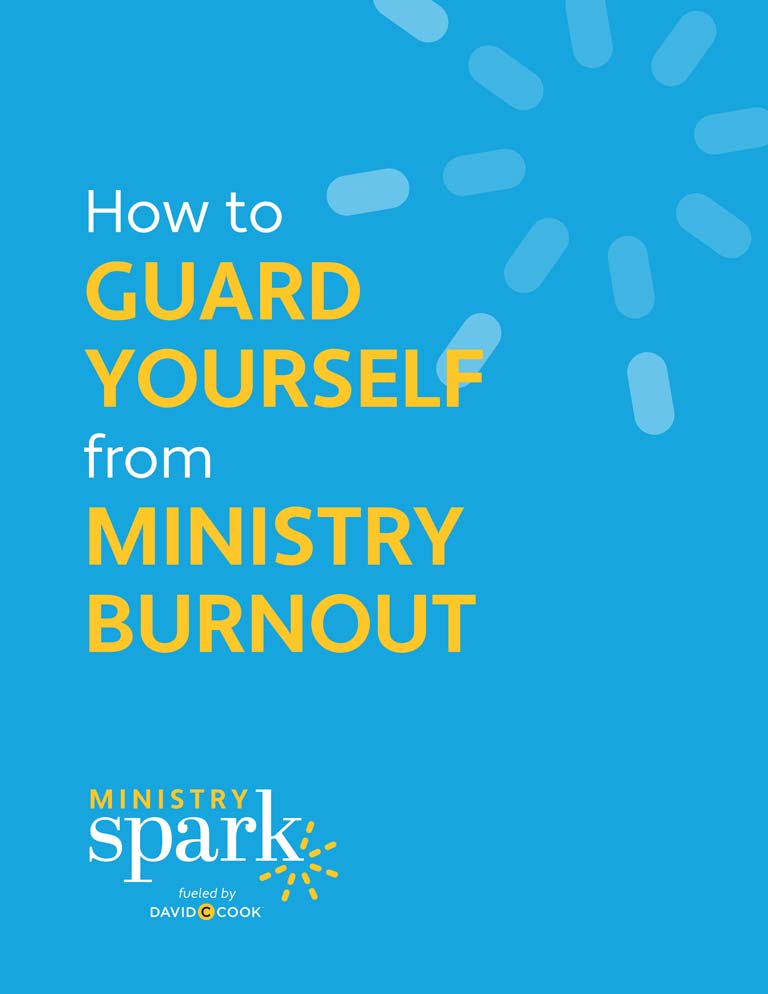Volunteers are the heroes among us.
In the landscape of volunteer-driven ministry, the dedication of these unsung heroes often goes beyond the call of duty. Balancing full-time jobs, familial responsibilities, and invested roles within the church, volunteer leaders face a unique challenge—maintaining healthy boundaries in the whirlwind of their commitments.
The line between passion and overextension can be thin. Healthy boundaries for volunteer staff involve threading the needle between faithful service and personal well-being. It’s about recognizing that ministry is a marathon, not a sprint.
Volunteers are the heroes among us.
Volunteer leaders must discern when to say ‘yes’ or kindly respond with ‘no’ when it is beyond their capacity, ensuring their service is sustainable and remains joy filled. We’ll explore what it looks like to establish healthy boundaries supported by practical strategies that are rooted in the wisdom from Scripture.
Follow this roadmap to advocate for balance between work and rest.
Volunteer Ministry Leaders: Understanding Healthy Boundaries in Ministry
Self-reflection is key. It is a healthy practice for leaders to regularly assess their emotional, physical, and spiritual well-being.
Are there signs of fatigue or frustration? Identifying these early allows for proactive boundary-setting, ensuring sustained and impactful ministry.
One main challenge when defining healthy boundaries for volunteer ministry leaders is balancing the ministry’s needs with their capacity to meet those needs. According to a survey done in 2022 by The Do Good Institute of the University of Maryland, nearly 65% of volunteer leaders report an increase in demand for their organizational services and feel overwhelmed due to their multifaceted responsibilities. Setting realistic expectations for staff and volunteers is the first step toward cultivating an environment where everyone can thrive.
For staff, this involves clear communication regarding workloads and regular check-ins to assess stress levels. Volunteers—who are often juggling myriad roles—must understand that it’s okay to say ‘no’ and that their well-being is crucial for longevity and impact. Establishing boundaries in roles and responsibilities is not just practical—it’s essential for playing the long game to build toward lasting change and accomplish set goals.
Staff and volunteers who communicate openly about their boundaries can enjoy more job satisfaction, emphasizing the pivotal role of clear communication in fostering a healthy ministry environment.

Strategies for Maintaining Healthy Boundaries
Let’s get practical. Creating an environment that promotes healthy boundaries requires intentional effort from ministry leaders and volunteers.
- Open communication: Encourage open communication within teams where volunteer leaders can voice concerns and limitations without fear of judgment. Ask about how they are doing and where they need leadership support. Thank them often and let them know how much they are valued.
- Structured schedules: Implementing structured schedules and realistic expectations helps volunteers manage their time efficiently. Stress levels can increase when roles are ambiguous. Being clear is kind. Creating structure and clear expectations allows volunteers to commit confidently and enthusiastically.
- Pay attention to signs of burnout: Attuned leaders identify signs of burnout among their team, intervening proactively and offering support when needed. If you notice a volunteer is feeling overwhelmed, ask them how they are doing and in what specific ways they need help.
- Work hard, rest often: An essential strategy to avoid burnout is creating a culture that values rest. Rest is a physical necessity and a biblical principle. Exodus 20 instructs us to remember the Sabbath and keep it holy. When ministries embody this practice, leaders, paid staff, and volunteers follow suit and find health and joy in their serving.
Boundaries are a delicate dance, and missteps can happen. The good thing about a boundary is that it isn’t permanent; it can change. Boundaries can shift if too rigid or too lax. When putting boundaries in place, try to avoid setting unrealistic expectations, overcommitting, or neglecting personal well-being for the sake of ministry. Healthy boundaries strengthen, instead of hindering, our ability to serve effectively.
Avoiding Burnout
Burnout looms when passion turns into exhaustion. To avoid this pitfall, leaders must prioritize self-care. Regularly evaluating workloads, taking breaks, and seeking support are crucial steps. Additionally, nurturing a culture where leaders feel empowered to ask for help ensures that no one bears the burdens of ministry alone.
The Gospel narrative in Luke highlights Jesus withdrawing to solitary places for prayer (Luke 5:16). Encourage volunteers to prioritize rest and engage in stillness, silence, and solitude. A person cannot pour from an empty cup; that is a recipe for burnout. Following the model Jesus set to spend time in quiet with the Father first—to be filled up before pouring out—is an example of a healthy and sustainable ministry practice.

How to Guard Yourself from Ministry Burnout

How to Guard Yourself from Ministry Burnout

How to Guard Yourself from Ministry Burnout

Beyond the Boundaries: Spiritual Practices for Volunteer Ministry Leaders Wanting Renewal
As we learn to navigate our boundaries and honor the boundaries of those on our teams, it’s crucial to recognize that boundaries go beyond schedules and commitments. Boundaries are an invitation extended to each of us to deepen our trust in God.
Incorporating spiritual practices into our lives is not just a luxury—it’s necessary for maintainability in ministry.
The busyness of our lives often drowns out the whispers of God. Encouraging volunteer leaders to embrace stillness, silence, and solitude allows them to reconnect with their spiritual core. Creating intentional moments of quiet reflection can be revolutionary in a world where constant connectivity is prized.
Psalm 46:10 says, “Be still, and know that I am God.”
This is not just a suggestion but a command. It is a lifeline for those navigating the complexities of dual relationships of leading in a ministry role. Incorporating stillness into our daily lives is a powerful strategy for maintaining healthy rhythms.
Healthy boundaries for volunteer staff involve threading the needle between faithful service and personal well-being.
A Journey of Balance
Establishing healthy boundaries is a journey, not a destination. By embracing realistic expectations, fostering open communication, and prioritizing rest and spiritual practices, volunteer ministry leaders and church staff can navigate the complexities of their roles with grace and resilience. Celebrate small victories, learn from challenges, and lean into the supportive community around you.
As leaders and volunteers, let’s continue to lead and serve, incorporating dedication, compassion, and a commitment to a well-balanced life where we work hard and rest often.
Liked this article? Here’s another one from Connie!








